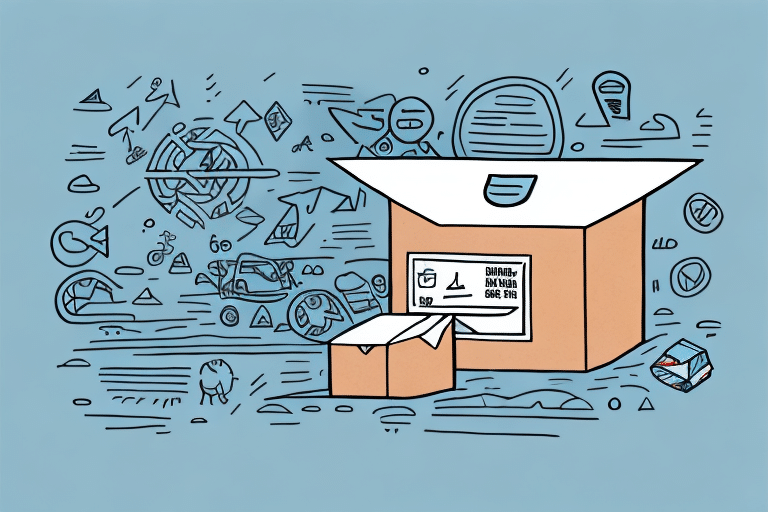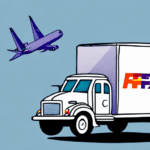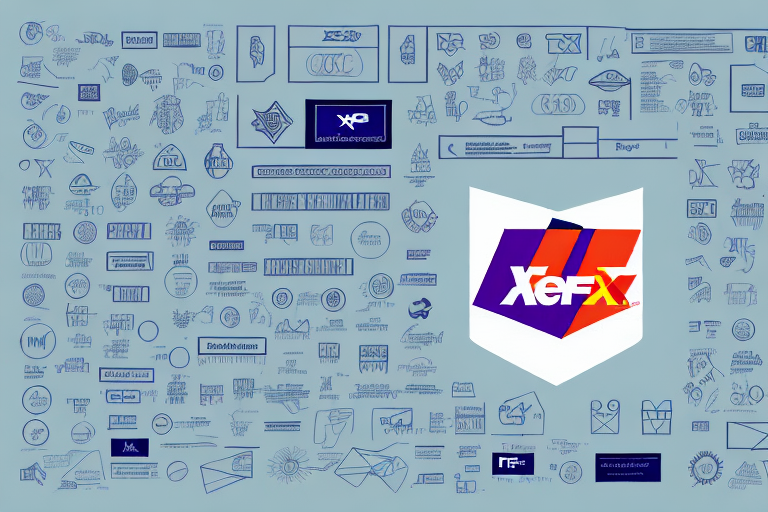Dealing with Shipment Exceptions: Best Practices and Strategies
In the logistics and shipping industry, unexpected issues can arise that disrupt the smooth flow of goods from sender to recipient. These disruptions, known as shipment exceptions, can lead to delays, increased costs, and diminished customer satisfaction. Understanding how to effectively manage these exceptions is crucial for maintaining operational efficiency and customer trust. This article provides an in-depth analysis of shipment exceptions, their common causes, and strategies to handle and prevent them.
Understanding Shipment Exceptions: Common Reasons and Types
A shipment exception occurs when unforeseen events interfere with the standard shipping process, causing delays or other complications. According to the 2021 Postal Service Report, shipment exceptions account for approximately 10-15% of all deliveries. Common reasons for these exceptions include:
- Weather-related delays: Severe weather conditions such as hurricanes, snowstorms, or floods can impede transportation networks.
- Incorrect or incomplete addresses: Errors in recipient information can lead to misdeliveries or returns.
- Missed pickups: Failure to collect packages on scheduled dates disrupts the shipping timeline.
- Customs issues: International shipments may face delays due to incomplete documentation or regulatory checks.
There are several types of shipment exceptions, including:
- Delivery exceptions: Occur when delivery cannot be completed, such as when the recipient is unavailable.
- Weather or natural disasters: Natural events that halt or slow down transportation.
- Customs delays: Issues at international borders that hold up shipments.
- Misrouted or delayed packages: Shipments sent to incorrect locations or held up in transit.
Understanding these exceptions is the first step in mitigating their impact on your business operations.
Identifying Shipment Exceptions Before They Happen
Proactive identification and prevention of shipment exceptions can save businesses time and resources. Key strategies include:
- Accurate Shipping Information: Ensure all recipient addresses and contact information are correct before dispatching packages.
- Comprehensive Customs Documentation: For international shipments, provide complete and accurate documentation to avoid customs delays.
- Reliable Carriers: Partner with carriers known for their reliability and efficient handling of shipments.
- Tracking and Monitoring Tools: Utilize advanced tracking systems to monitor shipments in real-time and receive alerts for potential issues.
Implementing these measures can significantly reduce the likelihood of encountering shipment exceptions.
The Impact of Shipment Exceptions on Your Business
Shipment exceptions can have far-reaching consequences for businesses, affecting both finances and customer relationships. Key impacts include:
- Financial Losses: Delays or lost shipments may necessitate refunds or replacements, directly affecting profit margins.
- Customer Satisfaction: Persistent shipment issues can lead to negative reviews and diminished customer trust.
- Supply Chain Disruptions: Exceptions can delay production schedules and order fulfillment, causing a ripple effect throughout the supply chain.
- Increased Operational Costs: Handling exceptions often requires additional resources, increasing overall operational expenses.
For instance, a study by Forbes highlights that efficient management of shipment exceptions can enhance customer loyalty by up to 20%.
Essential Steps to Take When a Shipment Exception Occurs
When a shipment exception arises, swift and strategic action is essential to minimize its impact. Follow these essential steps:
- Contact the Carrier: Immediately reach out to the shipping carrier to ascertain the status of the shipment and possible resolutions.
- Update the Customer: Proactively inform the customer about the exception, providing clear information on the expected resolution timeline.
- Collaborate with the Carrier: Work closely with the carrier to explore solutions such as rerouting the package or providing additional documentation.
- Provide Compensation: Consider offering refunds, discounts, or other forms of compensation to maintain customer satisfaction and trust.
Additionally, documenting all communications and actions taken is crucial for accountability and future reference.
Managing Shipment Exceptions with Carrier Policies and Technology
Understanding Carrier Policies
Each shipping carrier has its own set of policies and procedures for handling shipment exceptions. Familiarize yourself with these guidelines to navigate exceptions effectively. For example, UPS provides detailed procedures for handling delayed or lost shipments.
Leveraging Technology
Modern shipping technologies play a pivotal role in managing and resolving shipment exceptions. Implementing comprehensive shipping software can provide:
- Real-Time Tracking: Monitor shipments in real-time to quickly identify and address any deviations.
- Automated Alerts: Receive instant notifications about potential issues, enabling prompt action.
- Data Analytics: Analyze shipping data to identify patterns and proactively address recurring exceptions.
Investing in advanced shipping technology not only streamlines operations but also enhances the ability to manage exceptions efficiently.
Communicating Effectively with Customers During Exceptions
Transparent and proactive communication is vital when dealing with shipment exceptions. Effective strategies include:
- Regular Updates: Keep customers informed about the status of their shipments through emails or SMS notifications.
- Clear Explanations: Provide concise and understandable reasons for the delay or issue.
- Apologize and Take Responsibility: Acknowledge the inconvenience caused and take ownership of resolving the issue.
- Offer Solutions: Present actionable solutions, such as expedited shipping once the issue is resolved.
According to a report by Customer Contact Week Digital, 70% of customers consider a company's communication strategy as a key factor in their overall satisfaction.
Preventing Future Shipment Exceptions: Best Practices for Businesses
While it's impossible to eliminate shipment exceptions entirely, businesses can adopt best practices to minimize their occurrence:
- Comprehensive Training: Ensure that all employees involved in the shipping process are well-trained and understand best practices.
- Quality Control: Implement stringent quality control measures to verify shipping information accuracy.
- Automated Systems: Utilize automation to reduce human error in data entry and processing.
- Regular Audits: Conduct periodic audits of shipping processes to identify and rectify potential weaknesses.
Additionally, partnering with reliable carriers and investing in robust shipping technologies can further reduce the likelihood of shipment exceptions.
Leveraging Third-Party Logistics Providers
Engaging a Third-Party Logistics provider (3PL) can enhance your ability to manage shipment exceptions effectively. 3PLs offer expertise in handling complex shipping scenarios, including:
- Advanced Tracking Systems: Access to sophisticated tracking tools that provide real-time updates and insights.
- Expertise in Carrier Management: 3PLs have established relationships with carriers, facilitating quicker resolutions to shipment issues.
- Customized Solutions: Tailored shipping solutions that align with your business needs and mitigate common exceptions.
According to the 2023 State of 3PLs Report, businesses utilizing 3PL services experience a 25% reduction in shipment exceptions on average.
Case Studies: Real-Life Examples of Dealing with Shipment Exceptions
Customs Delays: Navigating International Borders
A mid-sized e-commerce company faced significant delays due to incomplete customs documentation. By partnering with a 3PL provider and implementing comprehensive documentation checks, the company reduced customs-related shipment exceptions by 40% within six months.
Misrouted Packages: Enhancing Tracking Accuracy
A retailer experienced a high rate of misrouted packages, leading to customer dissatisfaction. Implementing an advanced tracking system provided real-time visibility, allowing swift rerouting of packages and decreasing misrouting incidents by 30%.
Lost Shipments: Strengthening Carrier Relationships
After multiple instances of lost shipments, a manufacturer collaborated closely with their carrier to establish better tracking protocols and accountability measures. This partnership resulted in a 50% decrease in lost shipment cases.
Measuring Success: Metrics for Evaluating Your Response to Shipment Exceptions
To continuously improve your handling of shipment exceptions, it's essential to track and evaluate key performance metrics:
- Response Time: The speed at which your team responds to a shipment exception.
- Resolution Time: The total time taken to resolve an exception from its occurrence to final resolution.
- Customer Satisfaction: Feedback and ratings from customers regarding how their shipment exceptions were handled.
- Exception Rate: The frequency of shipment exceptions relative to total shipments.
Regularly analyzing these metrics can help identify areas for improvement and ensure that your response strategies are effective. Tools like Tableau and Microsoft Excel can aid in data visualization and analysis.
Conclusion
Shipment exceptions are an inevitable aspect of the shipping process, but with the right strategies and tools, their impact can be significantly mitigated. By understanding the common causes, implementing proactive measures, leveraging technology and third-party expertise, and maintaining clear communication with customers, businesses can effectively manage shipment exceptions. Continuously monitoring performance metrics and adapting strategies based on data-driven insights will further enhance your ability to handle exceptions, ensuring operational efficiency and sustained customer satisfaction.






















